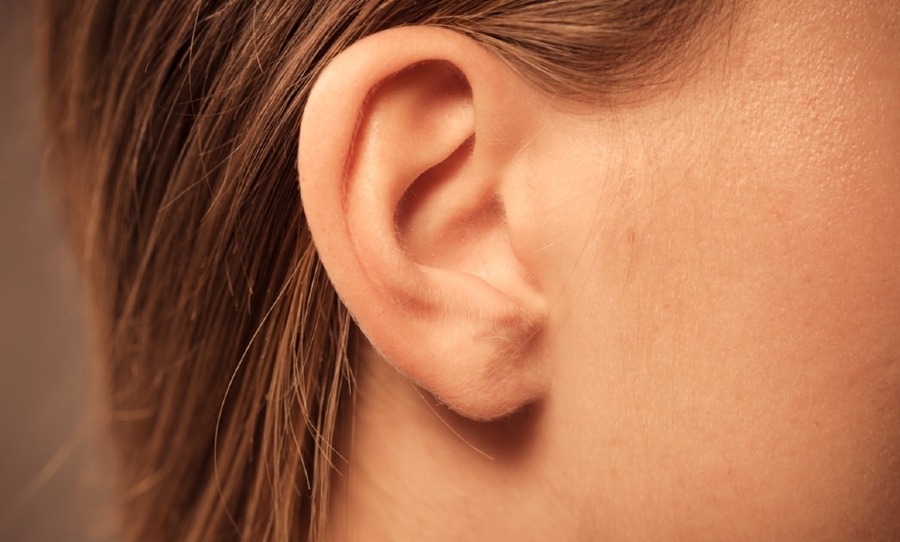What’s Causing That Rumbling Sound in My Ear?
Turns out, it’s not an underlying medical problem, it’s just you. A certain percentage of people can create this rumbling sound in their ears, which involves voluntarily controlling the tensor tympani muscle.
Earlier this month we reported on a tweet that went viral after explaining that not everyone has an internal monologue. Now the next whacky fact has picked up traction and it’s this: some people can make noises inside their own ears. So if you ever wondered what that suspicious sound effect is in your ear, that sounds a lot like rumbling, read on to see what it’s all about.
The source of the information is another tweet, which itself references a fact from 1884.
“A part of the human population can voluntarily control the tensor tympani, a muscle within the ear,” the tweet describes. “Contracting this muscle produces vibration and sound. The sound is usually described as a rumbling sound.”
A part of the human population can voluntarily control the tensor tympani, a muscle within the ear. Contracting this muscle produces vibration and sound. The sound is usually described as a rumbling sound https://t.co/FjD36qFACU pic.twitter.com/ianKb60EK8
— Massimo (@Rainmaker1973) February 17, 2020
A mysterious rumbling sound eh? The tweet is really *resonating* with people, dividing them into two groups: people who can make the sound, and people who can’t.
Lol I just assumed everyone could do it pic.twitter.com/pBrVIDdSr2
— Dion Delaney (@dionbdelaney) February 20, 2020
Been able to do that forever and wiggle my ears independently. Regrettably It doesn’t attract women and I can’t make money from it. Sad face.
— Simon (@Simstersnose) February 17, 2020
For those who can, there’s even an already existing subreddit called Ear Rumblers Assemble where you can go and talk about it with fellow ear rumblers.
And for those who can’t do it, the subreddit even contains a list of steps to help you figure it out, aptly titled, Guide: How to check if you can Voluntarily Ear Rumble.
I bet he’s thinking about other women.. from r/earrumblersassemble
Since the tweet, a survey has now also been conducted, with the findings reporting that “16% of people report they can voluntary ear rumble in isolation (& after reading a description 75% report ear rumbling with other movements such as yawning – 62% were already aware).”
Apparently, there are all types of ear rumbling and some people can control the volume whilst others can control the pitch. People around the world have offered their individual experiences of the phenomenon of the air sounds in ear, or the rumbling sound effect or the rumble noise you cant quite place, aka thunder noises.
One Reddit user commented: “I love that this is a sub. Can most people do it in both ears? It’s much stronger in my left.”
To which another user responded: “I can do my right ear for about 1 second before my left ear kicks in. And that’s with some strain.”
“Always in stereo for me. No left/right balance control” said another.
“Same here chief. Stereo only” agreed another.
Sounds that are attributed to ear rumbling: air sound (for lack of a better word)
So if you are asking why do I make a weird noise when I yawn, chances are, it’s actually you, and you fall into the category of people that can control their tensor tympani.
Hearing a rumbling sound in your ear is often a protective mechanism by your body. Sometimes, noises can be too loud and have the potential to damage your hearing. So who knew the ears have inbuilt capabilities to protect?
The ear reduces this risk by contracting muscles inside the inner ear that reduce or muffle the sounds. Doctors call these muscles the “tensor tympani.”
These muscles work to pull the malleus (a bone partially responsible for hearing) in the ear away from the eardrum. As a result, the eardrum isn’t able to vibrate as much as usual. This creates a dampening effect in the ear, which can create a rumbling sound.
You may notice this occurring when you:
- chew
- cough
- yawn
- yell
Not everyone “hears” or observes a rumbling sound when they perform these activities, but some do.
Sometimes, there are underlying medical causes that can create a rumbling sensation in the ear. These include:
- Ear infection. A middle ear infection or otitis media can occur when a person cannot drain fluid from their eardrum. The result can be ear pain, fever, a feeling of fullness in the ear, and problems hearing. Sometimes, these problems hearing can cause you to experience a rumbling sound in the ear.
- Meniere’s disease. This is an inner-ear disorder that usually affects one ear and causes symptoms such as dizziness, ringing in the ear, hearing loss, and a feeling of fullness or ear congestion that may create a rumbling-type sound.
Both of these conditions are treatable.
Mostly, people can just produce this sound at will. ANd it has nothing to do with any underlying conditions at all. You may find that you occasionally experience a roaring or rumbling noise and aren’t aware you are creating the effect on your own.
The ability to voluntarily contract the tensor tympani muscles may actually have additional benefits in addition to protecting the ear from loud inner noises. The ability to tense the muscles may also mask low-frequency sounds so a person can hear higher (and often harder to hear) high-frequency sounds that are higher in pitch.
For this reason, the ability to contract the tensor tympani muscles at will usually isn’t anything to worry about. Again, most people don’t even realize they’re doing it.
There you have it, the mysterious, or not-so-mysterious muscle that moves ears function that produces sounds near the ear, is actually not near the ear, they are your ear.
Happy rumbling kids.
Next up: Neil deGrasse Tyson reminds us why it would be a bad idea to smoke weed in space.



